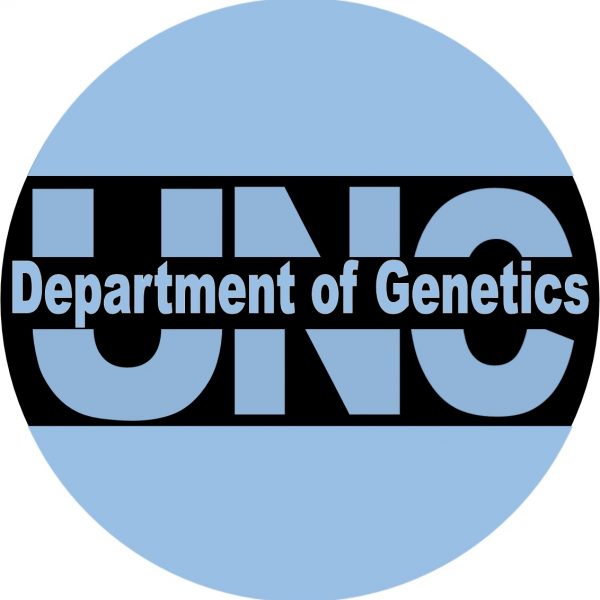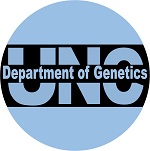Research Interests
Key words: gene-environment interactions, epigenetic reprogramming, epigenetic plasticity, developmental programming, DOHAD, genetic susceptibility
Dr. Ideraabdullah is an Associate Professor of Genetics in the School of Medicine and holds a joint appointment in the Department of Nutrition in the Gillings School of Global Public Health. She earned her PhD in comparative mouse genetics at UNC Chapel Hill and completed postdoctoral training in epigenetic regulation of genomic imprinting at the University of Pennsylvania.
The Ideraabdullah lab studies mechanisms of environmental modulation of the epigenome during development. We examine the impact on progeny development and health across the lifespan as well as potential for transmission to subsequent generations. A key focus is to identify naturally occurring genetic differences that contribute to variability in these outcomes for the purpose of identifying and helping susceptible populations. Ongoing projects investigate the impact of vitamin D deficiency, pesticide exposure, and hyperglycemia during pregnancy.
Current projects
Role of environment in programming the DNA methylation landscape during development. DNA methylation patterns in mammals undergo two required stages of reprogramming. In (i) germ cells and (ii) preimplantation embryos, genome-wide methylation is erased and reset as development progresses. We have shown that vitamin D depletion during development has persistent effects on adiposity and DNA methylation landscapes into adulthood. Mouse somatic and germ cell lineages exhibited primarily loss of DNA methylation and the extent of methylation change was dependent on genomic/epigenomic context. Our ongoing studies combine findings from diet, toxicant, and metabolic models to elucidate mechanisms by which developmental environment perturbs the progeny epigenome and impacts long-term metabolic health.
Role of parental genome in developmental programming. Genetic screening for susceptibility to disease typically focuses on the genotype and disease outcome within an individual. We have used a combination of environmental exposure models and induced/targeted mutant mouse lines and naturally occurring (Collaborative Cross) genetic mouse models to demonstrate that maternal genotype plays a key role in developmental programming of progeny DNA methylomes and phenotypes across multiple generations. Our ongoing studies are aimed at identifying the causal regulatory genetic sequences and using these to screen for susceptible populations.
Please feel free to contact me by email or phone to discuss potential areas of my research where you would like to be involved or learn more.
Mentor Training:
- Culturally Aware Mentoring
- Faculty Mentoring Workshop for Biomedical Researchers
- REI Groundwater Training
- TEAM ADVANCE
- UAB NORC Underrepresented in Academia Symposium Series
Training Program Affiliations:
- Genetics and Molecular Biology
- Nutrition
- Toxicology
Publications
Folami Ideraabdullah in UNC Genetics News

August 28, 2023
Department of Genetics Publications for August 13th – 26th, 2023
Department of Genetics faculty, postdocs, students and collaborators published 11 papers during August 13th - 26th 2023.

October 24, 2022
Department of Genetics Publications for October 9th – 22nd, 2022
Department of Genetics faculty, postdocs, students and collaborators published 10 papers during October 9th – 22nd, 2022.

August 29, 2022
Department of Genetics Publications for August 14th – 27th, 2022
Department of Genetics faculty, postdocs, students and collaborators published 14 papers during August 14th – 27th, 2022.

January 11, 2021
Dr. Folami Ideraabdullah Elected as a Director for Genetic Society of America
Dr. Folami Ideraabdullah (Associate Professor, Genetics and Nutrition) has been elected to a three-year term as a director of the Genetic Society of America.

January 4, 2021
Folami Ideraabdullah, PhD Appointed Associate Professor with Tenure
Dr. Folami Ideraabdullah has been appointed Associate Professor with tenure in the Department of Genetics with a joint appointment in the Department of Nutrition, effective Jan. 1, 2021.

January 4, 2021
Department of Genetics Publications for December 13-26, 2020
Department of Genetics faculty, postdocs, students and collaborators published nine papers during Dec. 13-26, 2020.

November 16, 2020
Department of Genetics Publications for November 1-14, 2020
Department of Genetics faculty, postdocs, students and collaborators published nine papers during November 1-14, 2020.

November 2, 2020
Department of Genetics Publications for October 11-31, 2020
Department of Genetics faculty, postdocs, students and collaborators published 18 papers during October 11-31, 2020. Survival, Pathologic Response, and Genomics in CALGB 40601 (Alliance), a Neoadjuvant Phase III Trial of Paclitaxel-Trastuzumab With or Without Lapatinib in HER2-Positive Breast Cancer. Fernandez-Martinez A, Krop IE, Hillman DW, Polley MY, Parker JS, Huebner L, Hoadley KA, …

September 15, 2020
Folami Ideraabdullah, PhD Receives R21 from NIDDK
Dr. Folami Ideraabdullah (Assistant Professor, Department of Genetics) was awarded an R21 grant from the National Institute of Diabetes and Digestive and Kidney Diseases (NIDDK) for her project titled “Investigating the Role of Metabolic Programming in Vitamin D Deficiency Induced Adiposity”.

September 8, 2020
Department of Genetics Publications for August 23 – Sept. 5, 2020
Department of Genetics faculty, postdocs, students and collaborators published eight papers during August 23 – Sept. 5, 2020.

